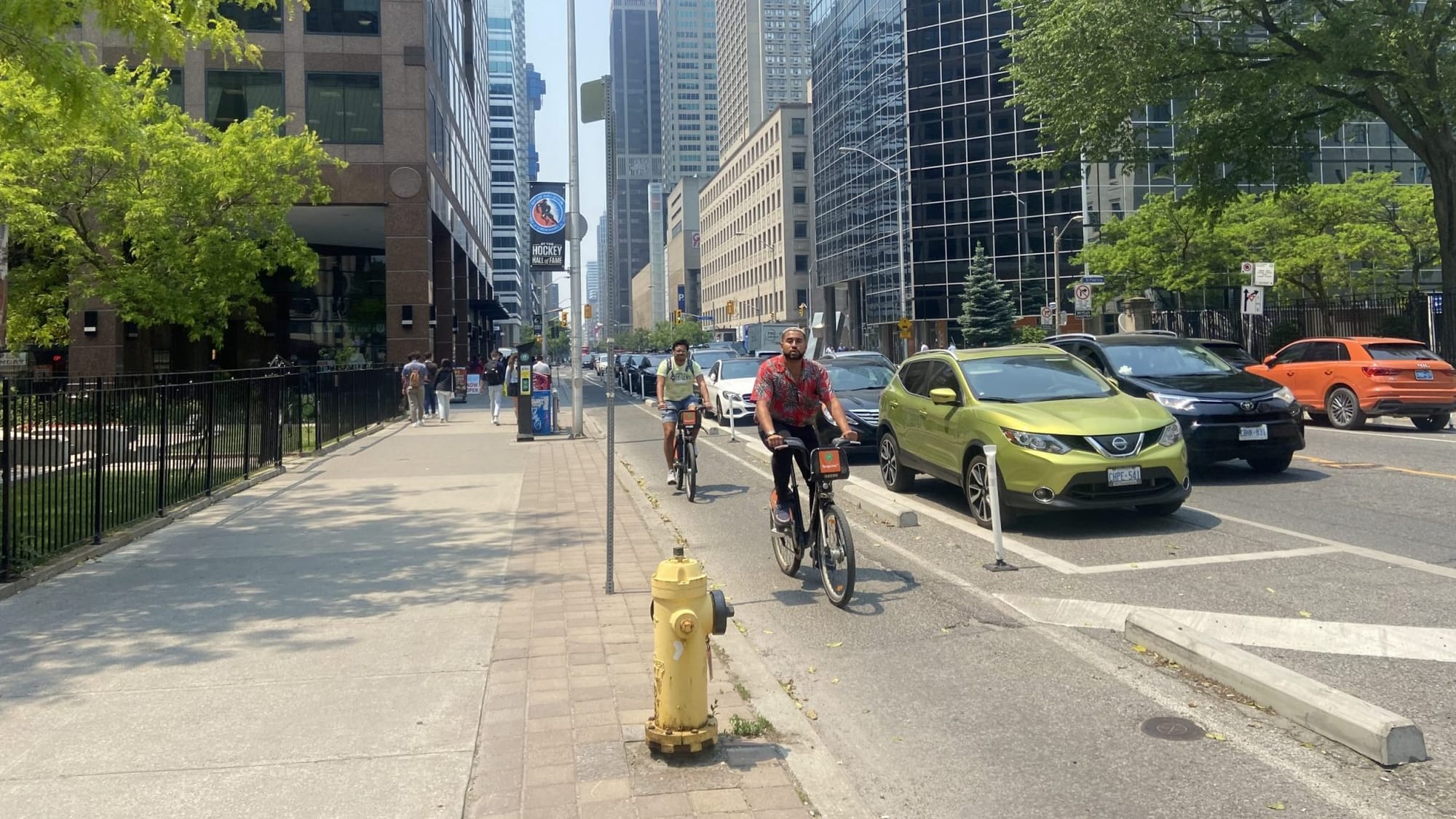Government of Ontario takes action to compel localities to obtain permission for bike lanes that replace motor lanes
The Bloor Street West bike lane project, which has been at the heart of the debate, has been met with opposition from business owners and residents who claim it has led to traffic congestion and decreased foot traffic.

The Ford government in Ontario is set to introduce legislation aimed at restricting the removal of vehicular traffic lanes to install bike lanes in municipalities.
This announcement came from Ontario Transportation Minister Prabmeet Sarkaria on Tuesday, alongside MPP Christine Hogarth and a local business owner from Toronto.
Sarkaria argued that while bike lanes are essential for providing safe transportation options, taking away lanes of traffic on already congested roads is not a sustainable approach.
The proposed legislation would require the provincial transportation minister to approve or deny plans to remove traffic lanes for bike lanes, a decision that would now rest in the hands of the province, rather than local municipalities.
The government justifies the move, pointing to a study by TomTom that ranked Toronto as having the third-slowest average traffic speeds among 387 cities.
Sarkaria also mentioned that municipalities must submit data, including commute times, when proposing changes to traffic lanes for bike lanes.
He also criticized municipal data collection methods, suggesting that bike usage during winter, rainy days, or extreme heat was not properly accounted for.
While the controversy over the bike lane on Bloor Street West in Toronto was mentioned, Sarkaria clarified that the government does not currently plan to remove the existing lanes.
However, he emphasized that municipalities are still free to install bike lanes without removing traffic lanes and can continue pedestrian zone projects.
The proposed legislation has faced criticism from the Green Party of Ontario, with Deputy Leader Aislinn Clancy calling it a "distraction." Clancy argued that reducing gridlock requires offering more transportation choices, such as biking, walking, and public transit, rather than reducing vehicular lanes.
The Bloor Street West bike lane project, which has been at the heart of the debate, has been met with opposition from business owners and residents who claim it has led to traffic congestion and decreased foot traffic.
A petition opposing the bike lane received thousands of signatures, with concerns over traffic delays and the project’s impact on local businesses. Supporters of the bike lanes, however, point to studies showing increased cycling, improved road safety, and positive economic impacts on businesses in the area.
The government’s new legislation, expected to pass due to its majority, is seen as an effort to address the ongoing gridlock issue in Ontario’s most congested cities, while balancing the need for more sustainable transportation options.





